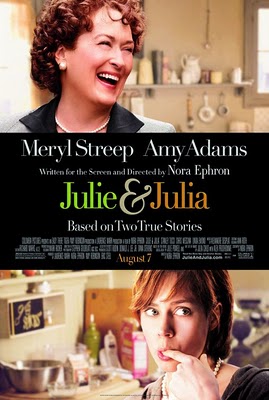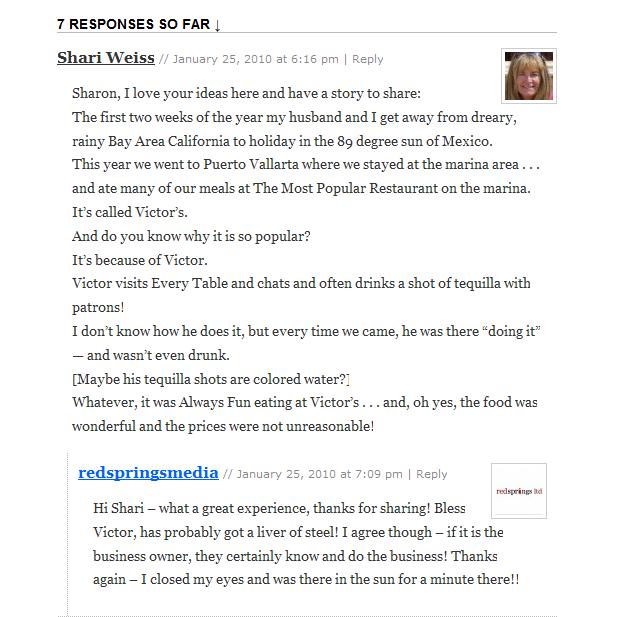 Q: Why do you want to blog?
Q: Why do you want to blog?
A: Because it’s new and I want to do it.
Q: What do you want to blog about?
A: I don’t know. You tell me.
Blogging is a power strategy for Content Marketing, i.e., communicating about yourself and/or your company to win friends, followers, clients, and customers.
Six Q’s and A’s for Beginning Bloggers
1. What is blogging all about & why are so many people doing it?
Blogging is all about putting your unique voice, opinions, insights, and understandings “out there” to (a) build an online presence, (b) establish yourself as a Thought Leader, and (c) begin conversations and relationships.
Lots of people are blogging — maybe over 200 million worldwide — for a host of different reasons. Most are undoubtedly personal bloggers writing diaries for the world to see. More and more, however, companies, institutions, and nonprofit organizations are understanding that there is a Communication Revolution going on and that the way day-to-day business IS and WILL BE conducted is turning to more authentic, transparent, supportive 2-way conversations, rather than the traditional blasting out of messages.
FURTHER READING:
Answer these nine questions before you decide to become a blogger
2. What do I blog about?
Like most marketing campaigns — as well as personal planning — you should decide on an objective:
What you will blog about has everything to do with why you want to start, build and maintain your online diary/report/journal/lecture.
If you are starting a blog for commercial reasons, then you naturally want to focus your communication towards a “target” audience. Noted social media authority David Meerman Scott suggests that all message-makers should have a clear idea of their consumer profile, i.e., specific data about your prospective readers.
Once you know whom you are writing for and why, you want to make certain that you offer content that is as relevant, informative, creative, and interesting as you can make it.
What’s the very best way to write the best blog articles? Write what you are passionate about.
The best way to improve your blog is to listen to your readers and think about them before — and as — you write.
FURTHER READING:
My story of Peter and “what to blog”
Any and all of Problogger – the hands-down online authority on How To Blog
3. How much effort will it take?
This answer, again, begins with your objective, but I suspect the real question might be: “Do I have to be writing every day to have a successful blog?”
If that is the case, then a simple answer is that Writing Consistently is more important/effective than Writing Daily.
Also, you are the one who decides whether you want short pithy blog posts like Seth Godin and Zahid Lilani or more detailed research reports like Brian Solis or something in between like Adam Singer or Suzanne Vara.
One key is to enjoy what you are doing – or it will show. Start slowly, maybe set a goal of one article a week. When you find that you want to publish more often, then find time to write twice a week . . . and so on. If you are particularly inspired on any day, then try to write an extra post or two that you can publish on a day when you have other commitments.
Another key is to realize that every time you publish new content, you are adding to your site and giving readers [some new] more and more of you. With that in mind, you want to make certain that Everything you publish is something you are proud of.
FURTHER READING:
Spend some time with the bloggers suggested above. Zahid just wrote an article on whether or not Bloggers were Writers
4. If I am not a great writer, how do I get over the fear of writing?
A Great Question! especially if you were never an English major [and what percentage of the world was?].
Here are three things to think about:
- Writing is compulsory thought. When you put fingers on the keyboard and start typing, you “force” yourself to think.
- To over come “writer’s block,” I tell my English composition students to have a reader in mind, e.g. your mother, your best friend, your least favorite uncle, etc. You may see how much easier it is to “talk” when you can envision who is listening.
- Like with any skill, “practice makes perfect” — or at least better.
FURTHER READING:
Conquer the fear of writing
5. How do you get to blogs? How will people get to my blog?
Two questions here: the first is easy; the second is not so.
Finding blogs to read is as easy as going to Google or some other search engine and putting in some key words. I, personally, have not yet written about the “Fear of Writing” so I simply Googled it and came up with the link listed above.
A better way to find blogs, though, is to follow someone’s recommendation. I gave you five suggestions above, BUT all of those marvelous people write about subjects of interest to me, i.e., social media marketing.
If you want to read and or write about dogs, jewelry, moms, or fashion, you will need to find experts in those fields and (a) see if they have blogs or (b) email them and ask for blog suggestions.
SECOND PART OF THE QUESTION: How will people get to your blog, i.e., how will you get readers?
The basic reason why this is not so easy to answer is because it is not easy to get readers, but here are a few “streamlined” suggestions:
- Write a lot. The more you write, the more Google has to index.
- Comment on other peoples’ blogs enough and they may come to read yours.
- Publicize your blog content on Twitter, Linkedin, Facebook, etc.
- Invite people to Guest Post on your blog.
- Starting out, though, I’d suggest emailing all your friends and letting them know what you are up to.
FURTHER READING:
Go online and search for articles “How to Get Readers”: you’ll find countless titles, but Problogger is best.
6. What are the biggest blogging mistakes?
This is really easy. Check the Guest Post by Suzanne Vara: Avoid These 9 Blogging Blunders
And you might want to check out my own 10 Biggest Mistakes Made by Social Media Newbies
MORE QUESTIONS?
Great! Ask away in the comment section OR, better yet, add your own answers.

















